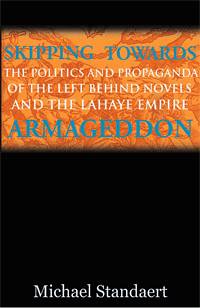A Spanish university professor with a long beard and dark complexion said Thursday he was briefly forced off an Air Berlin airliner during a layover on the Spanish island of Mallorca by German passengers who feared he was an Islamic terrorist. (full story)yet another helping of the post 9/11 blues
Islam is at the heart of an emerging global anti-hegemonic culture that combines diasporic and local cultural elements, and blends Arab, Islamic, black and Hispanic factors to generate "a revolutionary black, Asian and Hispanic globalization, with its own dynamic counter-modernity constructed in order to fight global imperialism. (say what!)
Friday, September 29, 2006
more 9/11 blues
Tuesday, September 26, 2006
the racial gap in the grandstands
See also:
latinos and baseball
blacks in cuban med school
Black Electorate: African American Education Free Outside U.S. Borders - Blacks In Cuban Med School by Zekita Tucker
Monday, September 25, 2006
latinas choosing islam over catholicism
NPR: Latinas Choosing Islam over Catholicism
see also from Grenada's past:
npr on latino/hispanic muslims
interview with samantha sanchez
south florida latina converting to islam
the emerging latino muslim community in america
many hispanics finding faith in islam
more hispanic women are converting to islam
latino muslims of the bay area
latino muslims seek answers
my journey as a muslimah
more hispanics turning to islam
ranks of latinos turning to islam are increasing
robert karimi
muslims march with latino community - july 18th
ole to allah
ramadan around the world
clippings on latino muslims
islam in latin america and latino muslims
Sunday, September 24, 2006
the akashic records
Steiner believed in something called the Akashic Records which is supposed to be a kind of comprehensive non-physical library of information which can be accessed by individuals with certain spiritual abilities.
Levi Dowling, the author of Aquarian Gospel of Jesus the Christ claimed to have gotten the information for his gospel from the Akashic records. And according to Hakim Bey (Peter Lamborn Wilson), The Aquarian Gospel of Jesus the Christ was one of the sources (in the "ordinary" non-mystical sense) of Noble Drew Ali's Circle Seven Koran.
It occurs to me that in the Quran (and hadith) there are many different references to a Book, or the Pen, or writing (e.g. [22.70] Do you not know that Allah knows what is in the heaven and the earth? Surely this is in a book; surely this is easy to Allah.) and that possibly some of these references are consistent with the concept of the Akashic records. The Quran tends to evoke the anthropomorphic image of angels following us with pieces of paper (made from trees?) writing down what we do (in what language?) with ball-point pens. But perhaps that concrete language is really refering to something different like the Akashic records? Allahu alim.
Saturday, September 23, 2006
ramadan mubarak y'all
pope benedict: the first year
Thursday, September 21, 2006
the neocon's lexicon
ramadan on saturday?
Monday, September 18, 2006
ramadan right around the corner
more on pope benedict and islam
Also, for a more "big picture" perspective, you might want to check out: Benedict XVI and Islam: the first year by Islamic scholar, Abdal Hakim Murad
latest message from osama bin laden
Google Video: Latest Message from Osama Bin Laden
Sunday, September 17, 2006
skipping towards armageddon
I recently started and am almost finished with a book published by Soft Skull Press and written by Michael Standaert called Skipping Towards Armageddon: The Politics and Propaganda of the Left Behind Novels and the LaHaye Empire.
Overall, I would say that the book is a good survey of the subjects covered in the subtitle. Standaert explores how the Left Behind novels can be viewed as political propaganda on behalf of the Religious Right and he also explains Tim LaHaye's extensive and varied connections to extreme-right and evangelical circles.
I was a bit surprised by how far to the right some of Tim LaHaye's connections go: the John Birch Society, Christian Reconstructionist groups which want to bring back stonings and slavery, anti-semitic organizations, militias, etc. And it was interesting to see Standaert trace some of the political implications of Premillenialism (one of several possible Christian views on the end-times). Specifically, Premillenialism teaches that the Second Coming of Christ will occur before the 1000 year period of peace, justice, and prosperity. In this view, a utopian existence will be ushered in by Jesus through supernatural means, and so efforts to improve our lives through human means (the UN, international co-operation, progressive social movements) will necessarily be considered suspect.
I wouldn't insist that all Premillenialsts are like this, but I think that in many evangelicals, Premillenialsim is woven together with conservative/reactionary political ideas to form a coherent and seamless (and somewhat problematic) worldview.
Perhaps more later...
an extensive excerpt from the book (pdf)
Soft Skull: Skipping Towards Armageddon
Eight Diagrams: An interview with Michael Standaert
The Huffington Post: Boycotting the Image, but Not the Word? (about a violent video game based on the Left Behind books)
Planet Grenada's past:
number of the beast
the rapture
christian reconstructionism
wayward christian soldiers
Saturday, September 16, 2006
beyond visibility: rethinking the african diaspora in latin america
Beyond Visibility:
Rethinking the African Diaspora in Latin America
University of California-Berkeley March 1-2, 2007
Abstract Submission Deadline: November 3, 2006
In recent years there has been an explosion in scholarship that goes beyond recognizing the presence of Afro-Latin Americans and towards interrogating this topic more deeply. Through this inaugural conference,we intend to build on this momentum--advancing inter-disciplinary scholarship on the African Diaspora in Latin America by moving towards research that critically engages the theoretical and methodological challenges of this research. Organized by the Afro-Latino Working Group at UC Berkeley’s Center for Latin American Studies, we aim to create a forum for graduate students to dialogue with established scholars whose work explores the African Diaspora in Latin America. This conference will foster new dialogues about race, ethnicity, culture, society, economy,politics and nation in the academic world. The conference will feature a series of graduate student panels as well as a faculty keynote and roundtable discussion from preeminent scholars working on the African Diaspora in Latin America. We invite abstract submissions from current graduate students on a diverse array of topics and disciplinary orientations that are both theoretical and empirical in content. The conference is oriented towards graduate students pursuing projects about the African Diaspora in the Americas (including Mexico,Central and South America, and the Spanish-speaking Caribbean). Specifically, we strongly encourage papers that address under-theorized regions in the Americas as well as comparative and regional works.
We offer the following themes as submission suggestions:
Theory and Pedagogy: New Directions in the Field
Social Movements and the Politics of Race
Media and Cultural Representations
Identity, Race and Ethnicity
Migration and Transnationalism
Folklore and National Identity
Comparative Historical and Literary Analysis
500 word abstracts should be submitted to the organizing committee via email as word documents or PDF files. Please submit abstracts by November 3, 2006. Submissions should include the abstract, current contact information, presentation title and current C.V. Accepted authors will be notified by December 15, along with full submission guidelines for papersand/or presentations. Full papers are due on January 5. All papers and presentations must be available in English. Papers will be made available through the Center for Latin American Studies.Submissions and inquiries should be sent to: afrolatinogroup@berkeley.edu or via USPS to
Friday, September 15, 2006
better than pork
A priest and a rabbi found themselves sharing a compartment on a train. After a while, the priest opened a conversation by saying, "I know that in your religion you're not supposed to eat pork. Have you actually ever tasted it?"
The rabbi said, "I must tell the truth. Yes, I have, on the odd occasion."
Then the Rabbi had his turn of interrogation. He asked, "Your religion, too... I know you're suposed to be celibate, but...?"
The priest replied, "Yes, I know what you're going to ask. I have succumbed once or twice."
There was silence for a while. Then the Rabbi peeped around the newspaper he was reading and said, "Better than pork, isn't it?"
moishe and the pope
About a century or two ago, the Pope decided that all the Jewish people had to leave Rome. Naturally, there was a big uproar from the Jewish community.
So, the Pope made a deal. He would have a religious debate with a member of the Jewish community. If the representative won, the Jews could stay. If the Pope won, the Jews would leave. The Jews realized that they had no choice. They looked around for a champion who could defend their faith, but no one wanted to volunteer. It was too risky. So, in desperation, they finally picked an old man named Moishe, who spent his life sweeping up after people, to represent them. Being old and poor, he had less to lose, so he agreed. He asked only for one condition to the debate. Not being used to saying very much as he cleaned up around the settlement, he asked that neither side be allowed to talk. The Pope agreed.
The day of the great debate came. Moishe and the Pope sat opposite each other for a full minute before the Pope raised his hand and showed three fingers. Moishe looked back at him and raised his index finger. The Pope waved his hand in a circle around his head. Moishe pointed to the ground where he sat. The Pope pulled out a communion wafer and a glass of wine. Moishe pulled out an apple.
The Pope stood up and announced, "I give up. This man is too good. The Jews may stay.'
An hour later, the cardinals were all around the Pope asking him what happened. The Pope said, "First, I held up three fingers to represent the Trinity. He responded by holding up one finger to remind me that there was still one God common to both our religions. Then, I waved my hand around me to show him that God above was all around us. He responded by pointing to the ground, showing that God was also right here with us, in our midst. I offered the wine and the wafer to show that God absolves us from our sins. He pulled out an apple to remind me of original sin. He had an answer for everything. What could I do?"
Meanwhile, the Jewish community had crowded around Moishe, amazed that this old, somewhat feeble man had done what all their scholars had insisted was impossible! "What happened?", they asked. "Well," said Moishe, "first he said to me that the Jews had three days to get out of the city. I told him that not one of us was leaving. Then, he told me that this whole city must be cleared of Jews! I let him know that we were staying right here." "And then?" asked a woman. "I really don't know," said Moishe. "He took out his lunch, so I took out mine."
papal bull
"Show me just what Mohammed brought that was new, and there you will find things only evil and inhuman, such as his command to spread by the sword the faith he preached."
The defenders of the current Pope are correct to point out that he was not saying these things himself but was only repeating a quote. On the other hand, the talk still included some misleading (although less incendiary) statements about the role of reason in Islam. And in any case, Benedict XVI has already made comments previously about the Christian (i.e. non Islamic) character of Europe and other topics which stronly suggest that his papcy does not bode well for future Muslim-Catholic relations.
Grenada's past:
ratzinger - benedict xvi
harry potter and the book-burning benedict
final call interview with immortal technique
the passing of the pope

